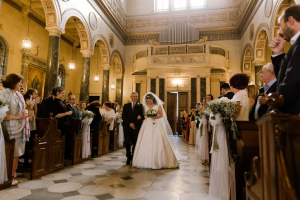By: Dr. Laura Bennett , a certified Reiki Master and holistic sexuality counselor

Introduction
God has sent Prophets to this world from time to time to guide humankind. Religious preachers say that God always sent a prophet in times when there was anarchy, social injustice, and other societal problems. In other words, whenever people started to forget God’s commands and became companions of the devil, God reminded them about the true purpose of their lives through the Prophets. In such a sinful society, the need for a Prophet – a messenger of God – was always felt, and accordingly, he was sent to the rescue and guide people to understand the difference between right and wrong.
Some of those prophets came with revealed books, known to be God’s own writing. The names of these revealed books are the Torah, Zaboor, Injeel, and the Quran.

Contents
Why the Idea Behind All Faiths is the Same?
There are many religions in this world, but interestingly, the focus of all these religions is on one thing: to live a pious life, do justice, be kind, and refrain from sins. Go anywhere in the world; the names may be different for God and religion, but the message will be the same – peace. The reason behind the familiarity among different religions is that people started to attach themselves to their prophet even if another Prophet came to refresh their belief in God.
For example, the nation of Prophet Moses is called Jews. The nation of Jesus Christ is called Christians, and the nation of Prophet Muhammad is called Muslims. First came Moses, and his followers kept themselves attached to his name. They didn’t convert to Christianity when Prophet Jesus came with the message of God. So, the people who became followers of Prophet Jesus didn’t accept the message of Prophet Muhammad. They all preached the same message of God, but as people kept themselves apart from other prophets’ followers, we have so many religions today. It is said that God sent almost 124,000 prophets for the guidance of humankind.

What is Faith?
Definition of Faith
Having faith means believing in certain religious teachings. Generally, all faiths tell humankind who they are, where they came from, and what the purpose of their lives is. There are many elements of faith. Each element of faith invites us to figure out the answers to these fundamental questions.
The Benefits of Following a Faith
Following a particular faith or religion enables a person to understand religion and live a religious life. When a person starts to act upon the guiding principles prescribed by a certain religion, they begin to weigh everything in the light of their faith. For example, they will consider their behavior according to their faith’s teachings regarding how to deal with parents, friends, and society at large. They will figure out and try to perform the rights and duties their faith asks them to perform. Hence, a person who believes and acts according to the teachings of their faith is responsible, just, and sensitive towards the rights of other human beings.

Clash of Faith Disrupts the Peace of Wedlock
Challenges of Interfaith Marriages
Normally, a person will always be careful and respectful towards a person who shares their faith. The situation becomes different when a person deals with someone who does not follow their faith. For example, interfaith marriages pose more problems in their relationships because of religious differences. Each partner, i.e., husband and wife, tries to pull each other towards their specific faith.
Repercussions of Faith Clashes on Children
Such tension and confusion remain until a child is born, and then parents are found in a dilemma, as is the child, about whose faith to adopt – daddy’s or mommy’s. In such marriages, where the husband and wife do not share the same faith, they must evaluate and put more weight on the common factors of their faith. When both the husband and wife welcome each other in evaluating the commonness in their faiths, the possibility of living a happy married life becomes guaranteed.

How to Start Creating Harmony in an Interfaith Marriage
Exploring Common Ground
In the first phase of this effort, both husband and wife should sit together and note down the similarities between their religions. The purpose of noting down similar teachings of their faiths is to understand and appreciate that all religions are not that different. When both the husband and wife have figured out the common ground, they lead toward a happier life and celebrate rituals and act upon their faiths more interactively.
Admission of Each Other’s Space on Grounds of Faith
Appreciating each other’s faith in a married couple injects a fresh air of peace and harmony. By understanding each other’s faith, you live it with a conscious mind. The burden of compromising will no longer exist. Such reconciliation of different faith believers in a married couple is crucial because their turmoil or harmony will also impact their children. Make sure that before your children come into the world, you have reconciled your beliefs with each other. Failure to understand each other can cause significant loss, resulting in impaired growth of your child.
Determine How the Children Will Be Taught
Communication for Child’s Upbringing
The best practice is for both parents to discuss how to inculcate religious values into their children. Again, there is a dire need for both husband and wife to work on the mutual ground their religion or faith shares. Effective communication is vital in such situations where both parents aim to impart their religion to their children. Both parents should consider each other’s views and deal with each other’s religion respectfully.
The Right Time to Decide
The right time to decide what your children will religiously believe is when they start gaining consciousness. The first step to educating your children religiously is for both husband and wife to conduct a “Religious Understanding” meeting. In this meeting, you will discuss all the aspects of faith you believe should be inculcated into your children’s fresh minds. Always discuss if you want your children to participate in any religious activity. It is fundamental that you bring up your child to have a clear concept of the religion you will teach them to follow.

When in Doubt, Ask it Out
Patience and Respect
The secret of a successful married life for interfaith believers is patience, respect, tolerance, and understanding each other’s faith. Remember, there is already a lot of opposition against your marriage as you chose to marry someone who does not share your faith. By realizing that many will try to make things worse between you two, you must lessen the pressure that comes when both husband and wife try to pull each other into accepting their beliefs. A couple from different religions needs to be extra prudent to keep their marriage intact and love each other.
Seek Help When Needed
Importance of External Help
It has been observed that people who marry out of their faith pay a price for it. This happens when each partner is adamant about imposing their religious views on the other. People are often sensitive about religion, and the subject is close to their hearts. No matter the good intention, a comment can hurt your partner and make them feel offended. This is why extra care is needed when handling religious issues. There have been many couples who married out of love but ended up divorced. When interviewed, each partner reported that there were no issues and that they loved each other. The bone of contention was the religious views.
Learning from Successful Interfaith Couples
However, there are success stories of interfaith marriages lasting forever. Couples with different faiths must respect each other’s positions. If a married couple finds themselves stuck on a certain religious issue, they should seek external help instead of fighting. Arrange a meeting with successful partners. Look around yourself and be open to discussing your religious issues with couples who have led a happier interfaith married life. The outcome of discussing such complex religious issues with people living in wedlock for many years with their beliefs would be encouraging for both husband and wife.
Go with an Open Heart and Mind
Honest Discussion
When reaching out to such a couple, be honest in your disposition and express what you think is right and what you believe your better half opposes. During this discussion, both of you may get emotional and feel offended. For the sake of understanding, prepare your mind to be gracious and listen to each other’s arguments with an open heart.
Acting on Suggestions and Recommendations
When the couple you reached out to listens to both sides of the arguments, they will suggest tips for reaching a win-win situation. In light of the suggestions, you will mold your behavior. You will find that these helpful tips work wonders in both of your lives.
Be Tolerant
Religious Tolerance and Indifference
There are two aspects to dealing with religion: religious tolerance and religious indifference. These terms represent different angles of religion, so do not mix them as this only creates confusion. To live a happier interfaith married life, the best practice is to be conscious regarding passing judgments about each other’s beliefs. Admission of the fact that you both have the liberty to follow the faith of your will. Don’t discriminate against each other’s faith and accept and value each other’s faith as you value your own. Through the power of tolerance, you will understand and accept your better half’s faith views. Though differences in thoughts and actions will always remain, you will lead a good life.
Conclusion
Building a Harmonious Interfaith Marriage
The secret to a successful interfaith marriage lies in mutual respect, understanding, and tolerance. By focusing on commonalities and appreciating each other’s faith, couples can build a harmonious and fulfilling married life. Open communication, seeking external help when needed, and maintaining patience and respect are crucial steps to achieving a peaceful and happy interfaith marriage.
Dr. Laura Bennett is a certified Reiki Master and holistic sexuality counselor with over 20 years of experience in energy healing and sexual wellness. She holds a Ph.D. in Holistic Health and specializes in integrating Reiki practices with sexual wellness to help individuals and couples deepen their connections, enhance intimacy, and heal from past traumas. Dr. Bennett leads workshops and private sessions that focus on balancing energy, fostering emotional intimacy, and cultivating a harmonious sexual relationship.


